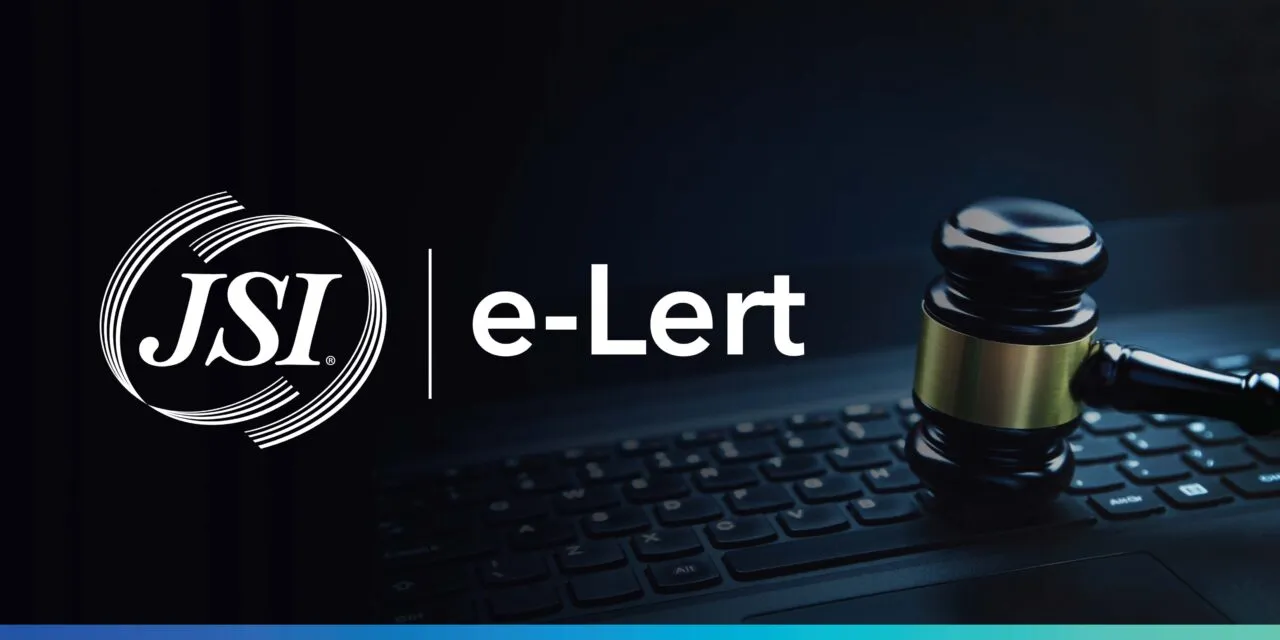
Time for Advocacy in Response to Fifth Circuit Decision

Time for Advocacy in Response to Fifth Circuit Decision Declaring the Federal Mechanism to Collect Funds for Universal Service Programs Unconstitutional
On July 24, 2024, the U.S. Court of Appeals, Fifth Circuit released its long-awaited decision on the Petition for Rehearing En Banc addressing the constitutionality of the current federal mechanism used to collect funds for federal universal service (USF) programs (5th Circuit, Case No. 22-60008). The court holds that the Federal Communication’s Commission (FCC) federal universal service surcharge method represents an unlawful mechanism for taxation because it employs an impermissible double delegation to a private entity and is therefore unconstitutional. The court remands the matter back to the FCC for further proceedings. As explained below, JSI strongly recommends that you actively participate in specific advocacy efforts to ensure that vital USF support continues to flow to your company uninterrupted.
JSI’s Analysis of the Decision
This decision is a departure from other U.S. Courts of Appeal decisions that have addressed the same issue. The 6th and the 11th Circuits decided in favor of the FCC, and the District of Columbia Circuit is due to release its opinion. The 5th Circuit three judge panel initially decided in favor of the FCC, but in a petition for review with 16 judges in the circuit (i.e., en banc), the initial decision was reversed. This matter is now ripe for U.S. Supreme Court review since there are conflicting opinions at multiple circuit courts.
Without a doubt, this decision is a seismic shift against the long-standing procedure the FCC has used to collect funds. The federal universal service contribution factor has been used to collect funds based on interstate and international revenues since the passage of the Telecommunications Act of 1996. The FCC employs the Universal Service Administrative Company (USAC), a private entity, to determine the amount of funds needed and to propose a contribution factor approved by the FCC.
The 5th Circuit reviewed the FCC’s contribution method and determined that the collection of universal service funds is a tax function and that taxation powers are solely vested in Congress. Only under limited conditions may Congress delegate its taxation power. Here, Congress delegated this authority to the FCC, which sub-delegated the authority to USAC. This court found that the double delegation (Congress to the FCC then FCC to USAC) is unconstitutional.
Specifically, the court examined the role of USAC in the collection of funds. It found that USAC is a private entity with the potential for conflicting interests and that it does more than perform ministerial functions for the FCC. The court views USAC as the decision maker for USF programs by setting the amount to be distributed and then calculating the USF tax rate every quarter. Its proposed surcharge (USF tax) rate is approved if the FCC does not act within 14 days. The court concluded that the FCC’s current role in setting the factor and determining the fund size is not an active role.
The court found that the double delegation of taxation authority is far beyond the confines of the constitutional structure. It held “that the universal service contribution mechanism’s double-layered delegation is incompatible with our constitutional structure” (internal quotes omitted) and found the USF tax method to be unconstitutional.
Active Participation in Advocacy Efforts is Critical
So now what? There are a few possible next steps. First, the court has remanded this decision to the FCC to allow the FCC to amend its method of collection to avoid a double-layered delegation. However, if the FCC were to take such action, it would leave the FCC exposed to possible further review on whether the conditions for delegation of taxation powers from Congress are met within Section 254.
Another avenue is for the FCC to appeal this decision to the U.S. Supreme Court. The Supreme Court would likely take the matter since multiple circuit courts of appeal have different decisions of the same collection method. JSI expects the FCC will appeal and also seek a stay of the 5th circuit court decision pending appeal to the Supreme Court. This would allow the current program to continue unchanged until the appeal is ultimately reviewed by the Supreme Court.
Notwithstanding possible court and FCC actions, Congress can take steps to ensure that federal high-cost USF continues to flow unabated to rural local exchange carriers.
Accordingly, JSI strongly recommends you convey to your Congressional delegations the need for clarity and stability for these high-cost programs. Some specific ways this can be done include discussing the critical role that USF serves in deploying and maintaining vital voice and broadband services to the large portions of rural America that your company serves with your Congressional delegations during the August district work period when your delegation is home or even remotely when they return to DC after the summer recess.
JSI has assisted many clients in similar advocacy efforts on Capitol Hill and can assist in drafting talking points and projected financial impacts to use with your delegation members as well as scheduling and assisting you in making presentations.
Please contact JSI if you would like assistance with these efforts, prepare responses for inquiring customers, or generate revised financial data to show the impact of federal USF. Contact Steve Meltzer, John Kuykendall, or Douglas Meredith.










